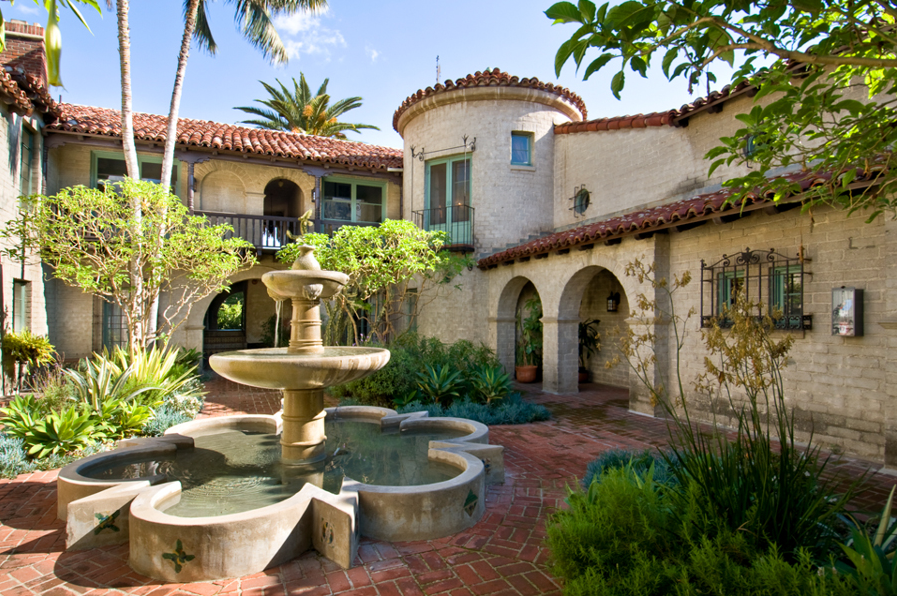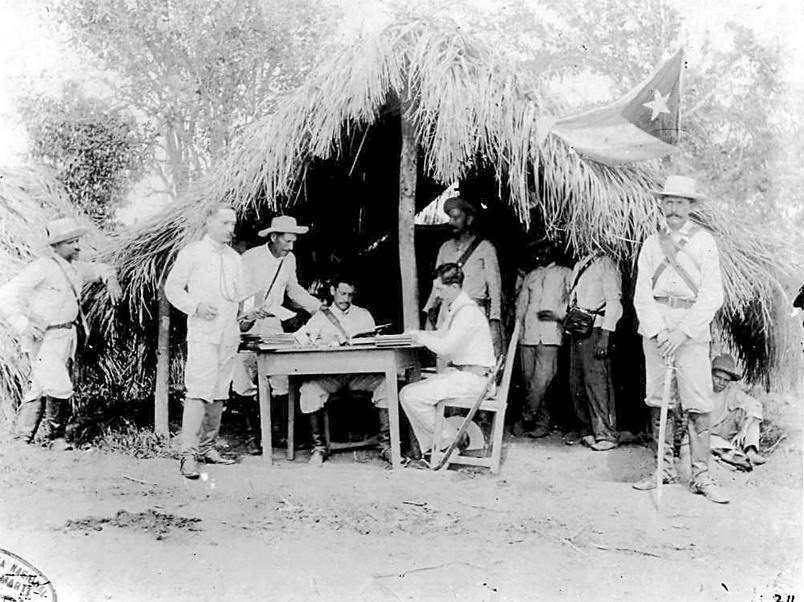|
Manuel Benitez Valdés
Manuel Benítez y Valdés was the Chief of the national police of the Republic of Cuba (1902–1959), Republic of Cuba under President Fulgencio Batista. He has been described as a "...rough, tough General..." He would often carry out Batista's orders with ruthless efficiency. Cuban historian Abel Rojas Barallobre writes that he is "...one of the most nefarious men in the history of Cuba." Early life Benitez's father was Manuel Benítez González, Manuel Benítez y González, a former Machadista (follower of Gerardo Machado) and soldier in the Cuban Liberation Army who helped purge the Spanish Empire from Cuba, and later a journalist for the Havana newspaper ''La Discusión''. Life in Hollywood Before he joined the Cuban army, Benitez was a supporting actor in several movies produced in Hollywood, Los Angeles. It has been written that "''Tenía una suerte loca con las mujeres,''" which is translated to read: "He had crazy luck with women." Nicknamed "El Bonito," or "Pretty ... [...More Info...] [...Related Items...] OR: [Wikipedia] [Google] [Baidu] |
Bernardo Garcia
Bernardo is a given name, possibly derived from the Germanic Bernhard. It may refer to: People * Bernardo the Japanese (died 1557), early Japanese Christian convert and disciple of Saint Francis Xavier * Bernardo Accolti (1465–1536), Italian poet * Bernardo Bellotto (c. 1721/2-1780), Venetian urban landscape painter and printmaker in etching * Bernardo Bernardo (1941–2018), Filipino veteran stage actor, comedian, and film director * Bernardo Bertolucci (1941–2018), Italian film director and screenwriter * Bernardo Buontalenti (1608), Italian stage designer, architect, theatrical designer, military engineer and artist * Bernardo Clesio (1484–1539), Italian cardinal, bishop, prince, diplomat, humanist and botanist * Bernardo Corradi (born 1976), Italian footballer * Bernardo Daddi (1348), Italian Renaissance painter * Bernardo Domínguez (born 1979), Spanish footballer known as Bernardo * Bernardo Dovizi (1470–1520), Italian cardinal and comedy writer * Bernardo Espinosa ... [...More Info...] [...Related Items...] OR: [Wikipedia] [Google] [Baidu] |
Pinar Del Río
Pinar del Río is the capital city of Pinar del Río Province, Cuba. With a population of 191,081 (2022), it is the List of cities in Cuba, 10th-largest city in Cuba. Inhabitants of the area are called ''Pinareños''. History Pinar del Río was one of the last major cities in Cuba founded by the Spanish, on 10 September 1867. The city and province was founded as ''Nueva Filipinos, Filipinas'' (New Philippines) in response to an influx of Filipino Cubans, Asian laborers coming from the Philippine Islands to work on tobacco plantations. Pinar del Río's history begins with two tribes, the Guanahatabey, a group of nomadic people who lived in caves and procured most of their livelihood from the sea. Less advanced than the other indigenous natives who lived on the island, the Guanahatabey were a peaceful and passive race whose culture came about largely independently of the Taíno. Another culture that inhabited this area was the Ciboney People, a subgroup of the Taino people who inh ... [...More Info...] [...Related Items...] OR: [Wikipedia] [Google] [Baidu] |
Colonel Manuel Benitez Y Valdes And Regiment
Colonel ( ; abbreviated as Col., Col, or COL) is a senior military officer rank used in many countries. It is also used in some police forces and paramilitary organizations. In the 17th, 18th, and 19th centuries, a colonel was typically in charge of a regiment in an army. Modern usage varies greatly, and in some cases, the term is used as an honorific title that may have no direct relationship to military. In some smaller military forces, such as those of Monaco or the Vatican, colonel is the highest rank. Equivalent naval ranks may be called captain or ship-of-the-line captain. In the Commonwealth's air force ranking system, the equivalent rank is group captain. History and origins By the end of the late medieval period, a group of "companies" was referred to as a "column" of an army. According to Raymond Oliver, , the Spanish began explicitly reorganizing part of their army into 20 ''colunelas'' or columns of approximately 1,000–1,250 soldiers. Each ''colunela'' was comm ... [...More Info...] [...Related Items...] OR: [Wikipedia] [Google] [Baidu] |
Havana
Havana (; ) is the capital and largest city of Cuba. The heart of La Habana Province, Havana is the country's main port and commercial center.Cuba ''The World Factbook''. Central Intelligence Agency. It is the most populous city, the largest by area, and the List of metropolitan areas in the West Indies, second largest metropolitan area in the Caribbean region. The population in 2012 was 2,106,146 inhabitants, and its area is for the capital city side and 8,475.57 km2 for the metropolitan zone. Its official population was 1,814,207 inhabitants in 2023. Havana was founded by the Spanish Empire, Spanish in the 16th century. It served as a springboard for the Spanish colonization of the Americas, Spanish conquest of ... [...More Info...] [...Related Items...] OR: [Wikipedia] [Google] [Baidu] |
Camp Columbia (Havana)
Camp Columbia () was a military post in Havana constructed by the United States Army during the Spanish–American War and the Cuban War of Independence. History Army troops of the VII Corps 3rd Infantry were stationed here immediately following the war until April 1899. Columbia later became a training camp for the Republic of Cuba (1902–1959). This camp would later be the military headquarters for the Cuban military, and the site of several revolutionary events in the early half of the twentieth century. Fulgencio Batista and Manuel Benitez Valdés were both stationed here, and this was the location of the first events of the Cuban Revolution of 1933. Around midnight on January 1, 1959, during the Triumph of the Revolution, the highest-ranking officials in the Batista government arranged to exfiltrate the country from the Camp Columbia airfield. Three hours after midnight, three large aircraft lifted off from this airfield, marking the official end of the Cuban Revoluti ... [...More Info...] [...Related Items...] OR: [Wikipedia] [Google] [Baidu] |
Hollywood, Los Angeles
Hollywood, sometimes informally called Tinseltown, is a List of districts and neighborhoods in Los Angeles, neighborhood and district in the Central Los Angeles, central region of Los Angeles County, California, within the city of Los Angeles. Its name has become synonymous with the Cinema of the United States, U.S. film industry and the people associated with it. Many notable film studios such as Sony Pictures, Walt Disney Studios (division), Walt Disney Studios, Paramount Pictures, Warner Bros., and Universal Pictures are located in or near Hollywood. Hollywood was incorporated as a municipality in 1903. The North Hollywood, Los Angeles, northern and East Hollywood, Los Angeles, eastern parts of the neighborhood were Merger (politics), consolidated with the City of Los Angeles in 1910. Soon thereafter, the prominent film industry migrated to the area. History Initial development H. J. Whitley, a real estate developer, arranged to buy the E.C. Hurd ranch. Whitley shared ... [...More Info...] [...Related Items...] OR: [Wikipedia] [Google] [Baidu] |
Supporting Actor
A supporting actor or supporting actress is an actor who performs a role in a play or film below that of the leading actor(s), and above that of a bit part. In recognition of important nature of this work, the theater and film industries give separate awards to the best supporting actors and actresses. These range from minor roles to principal players and are often pivotal or vital to the story as in a best friend, love interest, sidekick (such as Robin in the Batman series), or antagonist (such as the villain). They are sometimes but not necessarily character roles. In earlier times, these could often be ethnic stereotypes. In television, the term day player is used to refer to most performers with supporting speaking roles hired daily without long-term contracts. In Academy Awards, an annual award is given for the Best Performance by an actor/ actress in a supporting role. There is currently no specific criteria for the difference between nominations for supporting or ... [...More Info...] [...Related Items...] OR: [Wikipedia] [Google] [Baidu] |
Cuban Liberation Army
The Cuban Liberation Army (), colloquially known as the Mambises, Mambí Army () was an insurgency, insurgent army which was formed in the last third of the 19th century and fought for independence from Spain and the abolitionism, abolition of slavery. It first saw combat in the Ten Years' War (1868–1878) under the command of Carlos Manuel de Céspedes, Ignacio Agramonte, and Carlos Roloff. The independentists were decentralized and operated within their own regions autonomously of each other, until the Assembly of Guáimaro established the Republic of Cuba in Arms, Republic-in-Arms of Cuba and the Liberation Army's command structure. After the Pact of Zanjón, a brief uprising called the Little War (Cuba), Little War saw Majors-General Calixto García and Antonio Maceo Grajales, Antonio Maceo lead the Army of Liberation in another attempt at independence and the abolition of slavery, though unsuccessfully. Finally, during the Cuban War of Independence, War of Independence, the ... [...More Info...] [...Related Items...] OR: [Wikipedia] [Google] [Baidu] |
Gerardo Machado
Gerardo Machado y Morales (28 September 1869 – 29 March 1939) was a general of the Cuban War of Independence and President of Cuba from 1925 to 1933. Machado was elected president in 1924 as the leader of the Liberal Party, a moderate reform-oriented party. He entered the presidency with widespread popularity and support from the major political parties. However, his support declined over time and Machado took dictatorial powers. Despite promising to govern only for one term, he ran for re-election in 1928 and won a non-democratic election where the opposition was repressed. As protests and rebellions became more strident, his administration curtailed free speech and imprisoned, exiled, and murdered Machado's opponents. Ultimately, in 1933, Machado was forced to step down in favor of a provisional government headed by Carlos Manuel de Céspedes y Quesada and brokered by US ambassador Sumner Welles. Machado went into exile in Miami Beach, Florida. Family and education Mach ... [...More Info...] [...Related Items...] OR: [Wikipedia] [Google] [Baidu] |



